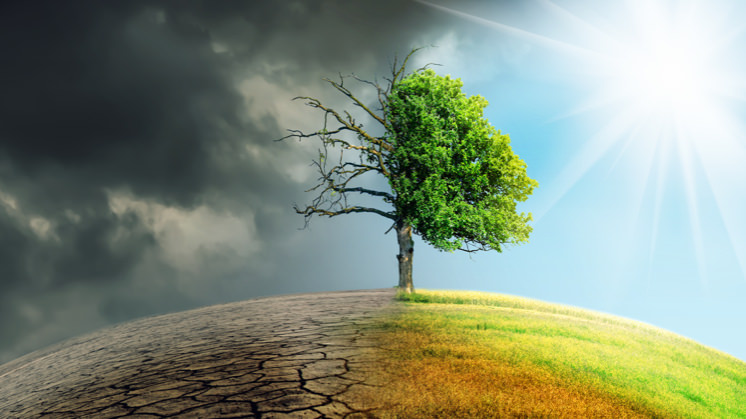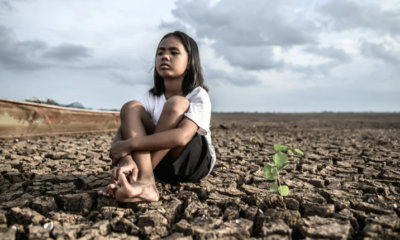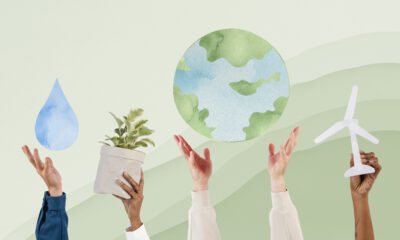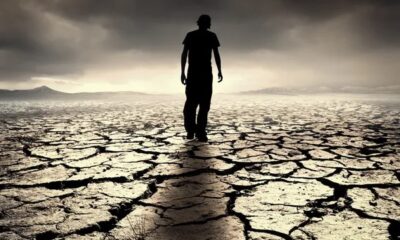Dive In
Climate Change: A Social Inequality Challenge

By Jailan Dahab
In spite of our awareness of the devastating impacts of climate change and the loud calls for a holistic global climate action, creating a climate-resilient world is far from being achieved. Climate change has unintended disastrous impacts upon the environment and socioeconomic outcomes, particularly of those living in climate vulnerable countries where the most vulnerable population lack vigorous adaptation means and measures and are unable to adjust to extreme events.
Climate change exacerbates human insecurity. The poorest will be the most hard-hit population group unless the challenge of climate change is well-addressed and sound and effective climate policies are developed in the near future. Thus, climate change impedes the achievement of the UN Sustainable Development Goals (SDGs) since a previous report by the World Bank concluded that climate change had already made the achievement of the Millennium Development Goals (MDGs) problematic and challenging.
One in three children in 27 countries suffering from food insecurity are malnourished and live with stunting, hampering their educational attainment and their cognitive and physical development. Climate change has also intensified inequality on many levels. For instance, climate change has increased gender-based inequality since women and children are more likely to die than men during disasters.
Furthermore, climate change is driving a bigger wedge between the developing countries, notably the African countries, and the developed countries that produce high carbon emissions since the former is suffering from multidimensional poverty and is highly dependent on foreign aids and funds for climate adaptation and resilience. Excessive exposure to climate hazards disproportionally and increasingly affects marginalized people and exacerbates multidimensional inequality. Hence, the underprivileged and marginalized people who contribute less to the problem carry the burden of climate change.
Hunger as a Byproduct of Climate Change
Climate change will make people’s lives in vulnerable areas even worse since they mainly generate their income through agricultural activities. The drastic increase in the occurrence of climate hazards and climate-related disasters – three times more than that of the 1970s and 1980s – is having a negative impact on livelihoods and crops, which, in turn, has fueled world hunger and exacerbated food insecurity, according to a study published by the FAO in March 2021. The same study concluded that natural disasters had cost the agricultural sectors of the developing countries more than 108 billion dollars between 2008 and 2018 due to the severe damage and huge decline in the production of main crops and livestock.
As a result, the estimated overall economic loss of African countries was 30 billion dollars over the same period. In South and East Africa, for instance, the situation is alarming due to biodiversity loss and the inclination to cultivate certain types of crops, including maize that needs a huge amount of water. In addition, the cultivation and production of olive, for example, has declined to 60-80%, reducing Egypt’s oil exports and affecting its position as one of world’s top producers of olive.
By the same token, another study published by NASA in November 2021 concluded that climate change may negatively affect the production of main crops by 2030, such as maize which is expected to decline by 24% due to the change in yields, high temperature, fluctuations in rainfall patterns, and high carbon emissions. This illustrates that achieving the target of zero hunger by 2030 is still off-track and far-fetched.
The COVID-19, Climate Change, and Food Insecurity Triad
The outbreak of the Coronavirus has further aggravated such a vicious crisis due to supply chain disruptions and high shipping costs which led to the sharp increase in the prices of goods and food and the delay in delivery. For the time being, only 12 crops provide 75% of the global food supply.
In view of this, Egypt is looking forward to incorporating the social dimension of climate change in the global climate agenda since climate models demonstrated that the Mediterranean and Southern Africa regions will be drier in the next decades and that the high temperature will increase the demand for water evapotranspiration. Egypt, on behalf of African countries, will capitalize on the outcomes of the Glasgow Climate Summit and will usher for rights-based climate action in order to build resilient and cohesive communities and to address water scarcity in the developing economies, in general, and Africa, in particular, where chronic food insecurity exists and armed conflicts endanger regional peace and security.
A Way Forward
Heads of states and climate activists have chanted for a global climate action and have taken numerous steps, albeit of slow progress, over the past few years to address this challenge. The COP 26 Summit in Glasgow, UK, has capitalized on the outcomes of the 2015 Paris Agreement and former COP Summits, given that 151 countries pledged to minimize the gap between the carbon emissions reduction targets by 2030 and the actual performance by submitting a five-year climate plan or NDCs (Nationally Determined Contributions), alongside curbing methane emissions and halting forest loss.
In addition to that, developed countries have made a collective commitment to help vulnerable countries to adapt to climate change and its costly repercussions by delivering more resources. Still, further steps should be taken since we are in a race against time to address such a global, multidimensional challenge.












